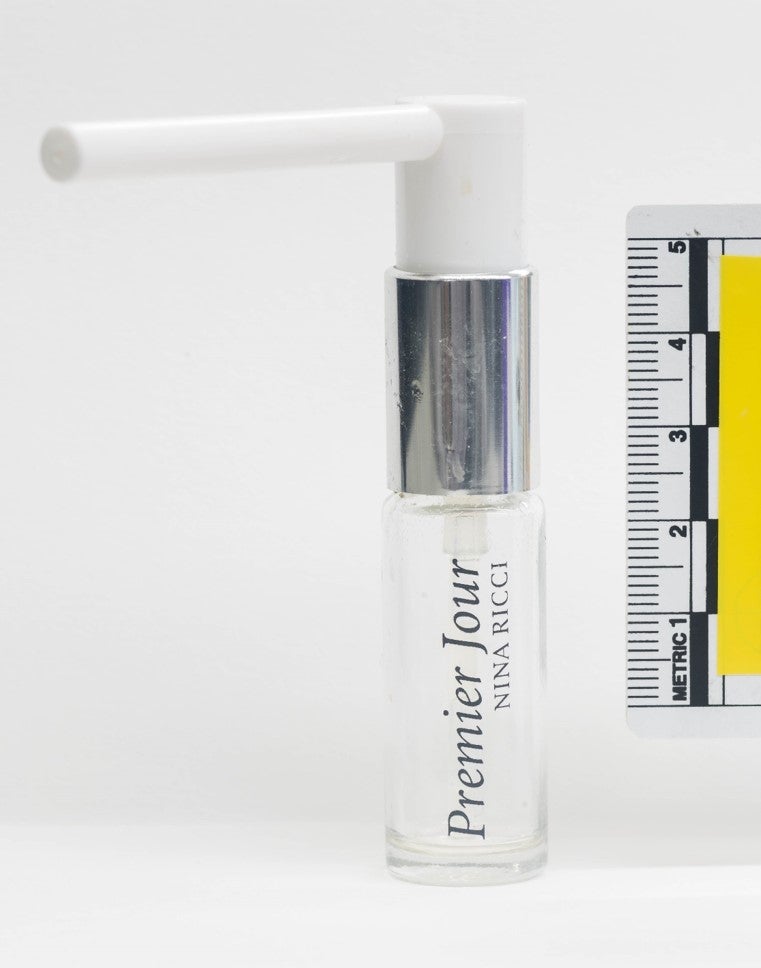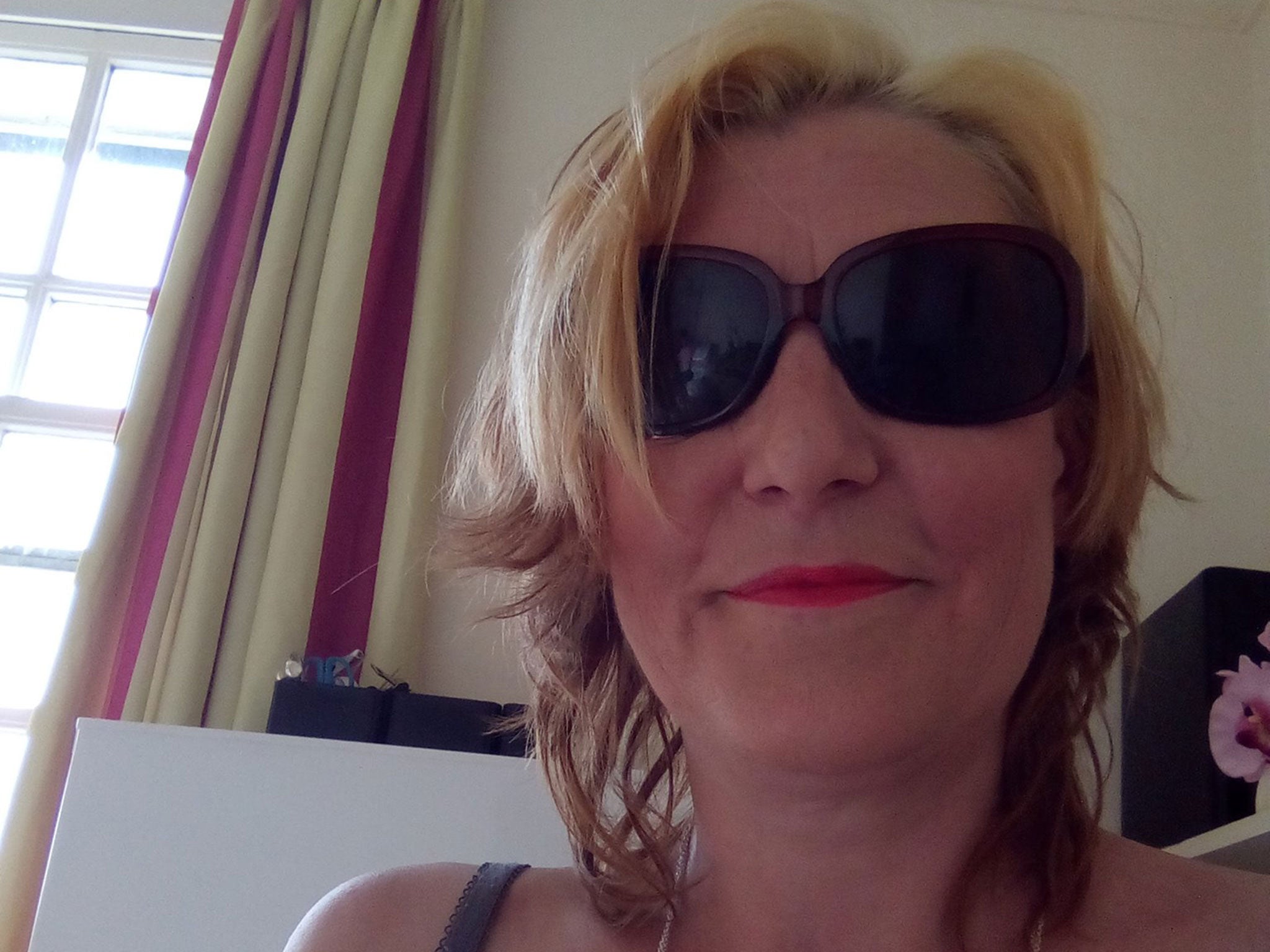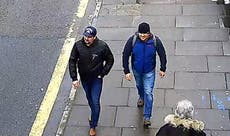Novichok bottle that went missing in Salisbury ‘could have killed thousands’
Victim Dawn Sturgess died after applying novichok from the discarded bottle to her skin in the belief that it was perfume
The amount of novichok concealed in a counterfeit perfume bottle used in the 2018 Salisbury attack could have killed thousands of people, police have said.
Investigators still do not know what happened to the weapon between when it was used to poison Sergei Skripal on 4 March 2018 and when it was discovered by a member of the public on 22 June that year.
Believing the fake Nina Ricci perfume to be real, Charlie Rowley gave it as a present to his partner Dawn Sturgess, who died after applying the nerve agent to her skin.
Dean Haydon, the senior national coordinator for counterterrorism policing, said investigators had not established how the bottle was brought into the UK.
“The amount of novichok in that bottle was quite significant, and could have killed hundreds if not thousands of people if it had come into wider circulation in the public,” he told a press conference.
“We have not been able to account for the whereabouts of the bottle, nozzle and box between the initial attack and Mr Rowley finding it on 22 June. We want to hear from anyone who might have information.”
Mr Rowley believes he may have found the bottle in a charity shop bin in Salisbury, but Mr Haydon said police had not found any evidence to confirm exactly where it was found or how it got there.
He said there was a “gap” in the investigation over where the two Russian GRU agents who carried out the attack discarded the bottle after using it to apply novichok to Mr Skripal’s front door.
The issue is expected to be a key part of the inquest into the death of Ms Sturgess, a 44-year-old mother. A hearing will take place on Wednesday.
A third Russian spy has been charged with involvement in the attack, which targeted former Russian double agent Mr Skripal.
Denis Sergeev, who travelled to the UK under the alias Sergey Fedotov, is believed to have commanded the two GRU agents who carried out the poisoning from London.
He flew from Moscow to Heathrow airport on 2 March 2018, arriving around four hours before his colleagues, and stayed at a hotel in Paddington for two nights.
British counterterrorism police said Mr Sergeev met with the two agents, who then travelled to Salisbury “on more than one occasion” over the weekend of the attack, but that no traces of novichok were found at his hotel.
Mr Sergeev, who is aged around 50, flew back to Moscow from Heathrow at 1.45pm on 4 March, less than two hours after the nerve agent was applied to Mr Skripal’s door.

The Crown Prosecution Service (CPS) has authorised the same charges against Mr Sergeev as the two previous suspects, including the attempted murder of Mr Skripal and his daughter Yulia, the grievous bodily harm of police officer Nick Bailey, and the use of novichok as a chemical weapon.
The Russian government has denied any involvement in the 2018 attack. At a press conference on Tuesday, Ministry of Foreign Affairs spokesperson Maria Zakharova accused the UK of “deliberately worsening relations” and of using the poisoning “to increase anti-Russian feeling in British society”.
“We condemn attempts to blame Russia,” she added. “We are trying to ascertain the truth and want exhaustive information from the UK, and to fulfil obligations to give us consulate access to our citizens [Sergei and Yulia Skripal]”.
Mr Haydon said Mr Sergeev had “operated as a team” with Alexander Mishkin, alias Alexander Petrov, and Anatoliy Chepiga, alias Ruslan Boshirov.
Mr Haydon, who is also deputy assistant commissioner of the Metropolitan Police, told a press conference: “They came here separately in two groups – Petrov and Boshirov together, Fedotov by himself – [and] met, and without a doubt they’ve operated as a small team with a view to deploying novichok to kill people in this country.
“There is other intelligence that suggests they’ve been here before, but in other countries as well, working as a threesome and likely with others … in relation to similar attacks.”
British police are working with their counterparts in Bulgaria and the Czech Republic in relation to attacks linked to the same suspects. Investigators said there was no evidence that they had been involved in previous attacks in the UK.

The charges announced on Tuesday do not cover the death of Ms Sturgess and the inquiry into her death continues.
“There are still parts of the picture we have not been able to piece together,” Mr Haydon said. “We remain as determined as ever to bring those responsible for Dawn’s murder and Charlie’s poisoning to justice.”
The CPS is not applying to Russia for an extradition warrant because the country’s constitution does not permit the extradition of its own nationals.
Instead, Interpol red notices have been issued, meaning the suspects can be arrested if they leave Russia – where all three men are believed to remain.
Police are appealing for anyone who saw Mr Sergeev in the UK, or may have information on the whereabouts of the counterfeit Nina Ricci perfume bottle between March and June 2018, to call the anti-terrorist hotline on 0800 789 321 or email salisbury2018@met.police.uk.




